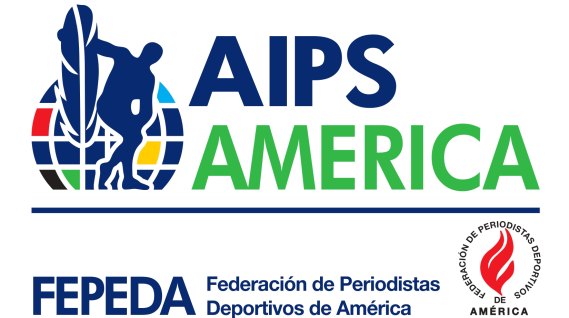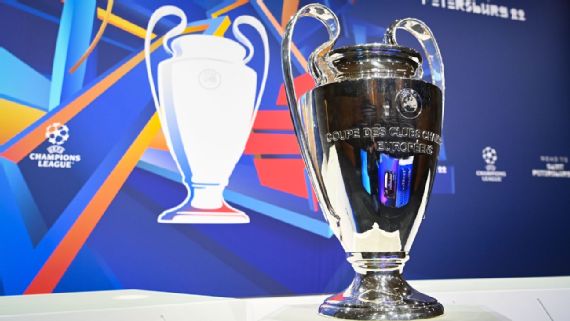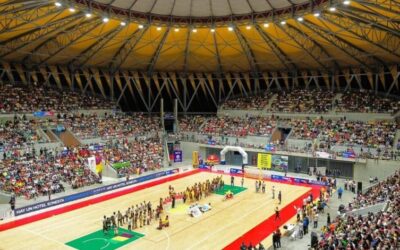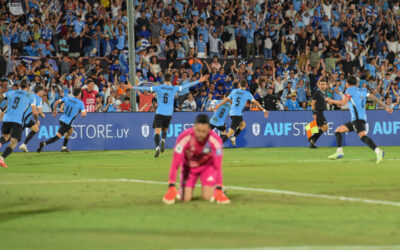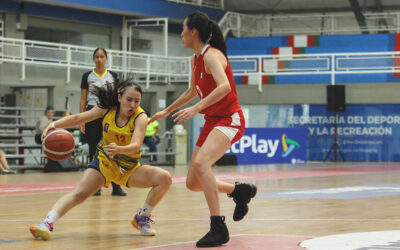By Benjamín Acuña Poblete.
One of the most discussed topics across sports press and media during the past few weeks was the innovative competition format which UEFA will implement at the Champions League from the year 2024 onwards. UEFA, through an official website press release, confirmed such and explained that the innovation came from the fact that the tournament “has evolved and has been continuously adapted to keep up with the pace of broader changes across the game”. UEFA aims to reinforce the positioning of the European football as the world´s most popular.
The formula which will be utilized in the tournament which includes top European clubs, is actually utilized at Concacaf World Cup Qualifiers, Copa Peru (one of the largest competitions in the world, in terms of quantity of teams), among other competitions. However, the formula was not only designed for football: the formula also applies across diverse individual of collective sports, such as tennis, volleyball, basketball and, even, chess.
But, prior to arriving to the world most prestigious tournaments, the release of this formula happened in Chile, at “Copa Chile 2011”, a multi-division football clubs tournament, which champion was Universidad Catolica, upon defeating, under penalty shoot-out, Deportes Magallanes, a historical club in such South American country which has been away from the first division since 1986.
Mr. Rene Rosas, who held the position of Competitions Director at the Chilean National Professional Football Association (ANFP), at that time, stated that the main feature of the format is that «it is very balanced, as there does not exists the possibility of having a defined contender or been qualified for the next stage of the tournament, prior to the final phase”. Therefore, in such tournament, participant clubs from diverse leagues enjoy the same opportunities to make it to the final stages.
For now, the Champions League will hold its last two editions under the current format. The groups stage will be removed and the tournament will be based in a single general standings table for the 36 participant teams. Each contender will play four matches at home and four matches as visitor, for a total of eight matches with eight different contender teams. Contenders will come from 4 different pre-defined pots and pots will be determined based on performance indicators of the tournament participant clubs.
Based on the above, teams will play against two rivals from each pot, including their own pot. On defining which squads will qualify for the final stage, UEFA is likely to define a «FInal Four» in a city to be determined; however such information is not yet confirmed.
René Rosas mentioned that, prior to Copa Chile 2011, «we held many meetings» with Leandro Shara, a Chilean mathematician known as the author of this tournament system, for discussing and adjusting the solution. On the format, Mr. Rosas shared the fact that one of the key benefits is related with accomplishing an optimal positioning for «participant teams or clubs based on their merit and sporting level, within a single general standings table”.
Other Formulas Utilized in Latin America
On top of being the first country to implement the Leandro Shara format, current competition key features for the FIFA World Cup qualifiers at Conmebol were designed in Chile. Such are: a) national teams play the last match-date against the team which they played with in the first match-date and b) teams play two consecutive matches at home and then two consecutive matches as visitors.
«This system was requested to the Mathematics Department, at the Faculty of Engineering of “Universidad de Chile”. They proposed diverse possibilities, one of which is currently utilized. Each country presented diverse formats and the majority voted for the proposal from Chile», stated Mr. René Rosas.
«The systems proposed by presidents from other federations comprised, among others, three consecutive matches as visitor and then three as local. Under such, the tournament is
not truly competitive. There had to be a system with assured sports justice. This was not the case and, even worse, under the scenario of qualifiers based on groups at that time».
An additional formula that ANFP implemented when Rene Rosas held the Competitions Director position was eliminating extra times at quarter-finals and semi-finals at Copa America. Under his opinion, such resulted in time fillers. Penalty shoot-outs are more exciting and matches become more competitive. «The ideal was to hold extra times just for the very final match, as happened in the Chile-Argentina matches (2015 and 2016)».
Currently, Rene Rosas is the Executive Director of the National Basketball League of Chile, an experience that he defines as «beautiful». «We have worked hard attempting to have basketball matches the largest number of days on the screens for its fans».
The Executive Director mentioned that basketball was his favorite childhood sport and
«when I became Director of Deportes Temuco –a Chilean first division football club– everybody said that I belonged to basketball and now the same happened: the majority of people knew me at football».
«One has worked for diverse organizations, all of them trying to perform at best and leaving a positive legacy in both administrative and sportive aspects. I believe that my career has seen sustained growth in every way that one wants as sports leader», concludes Mr. Rosas.
Just like the ANFP formulas made it to the top competitions at Conmebol, the model created by Leandro Shara will be part of upcoming editions of the Champions League, with a significant deployment which will expand the number of teams for the tournament, resolve issued related to sports justice and become a new alternative for the future of other mayor sports events such as the FIFA World Cup and, even, the Olympic Games.
